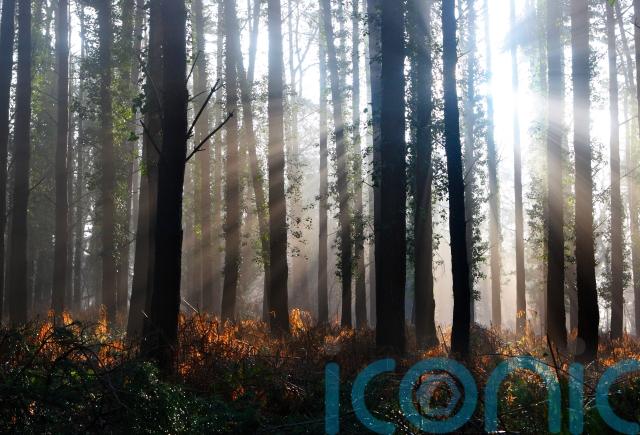
The UK’s climate-aid spending on nature protection and restoration reached record levels of nearly £800 million last year, analysis of Government figures shows.
The data, provided to climate and energy website Carbon Brief under freedom of information laws, suggests the country is on track to achieve its five-year pledge to provide £3 billion in nature-related funds for developing countries by 2026.
The analysis shows UK spending on nature-related programmes reached £796.6 million in 2024-25, bringing the cumulative total to £2.3 billion.
This means it would need to spend £684.8 million on such projects in 2025-26 to hit the £3 billion target.
Funding for forest protection has also increased, but will need to rise by an additional £100 million this year in order to meet the target of £1.5 billion within the £3 billion total, Carbon Brief said.
The figures from the Foreign Office, Environment Department and Energy Department, include climate-aid contributions to forest-dense regions, from the Amazon to the Congo Basin.
Projects covered by the “nature” target include an initiative tackling water insecurity and pollution in Nepal, support for “climate-smart agriculture” in African countries and a fund aimed at delivering the global target to protect “30% of earth’s land and sea for nature”.
By far the largest slice of last year’s finance came from a £153.9 million project supporting carbon-offsetting schemes in developing countries, according to the figures.
Carbon-offsetting schemes aim to make reductions of carbon dioxide in the atmosphere to compensate for emissions deriving from human activity and can be controversial because of concerns they fail to deliver promised emissions reductions, can distract from efforts to cut emissions and are poorly regulated.
The £153.9 million supporting carbon-offsetting projects amounts to almost half of the UK’s forest funds and is one of the largest donations the country has made to a “nature and forests” project since 2021, outstripping others that have been under way for years.
The only larger overall recipients have been multilateral funds such as the Green Climate Fund (GCF) and the Global Environment Facility (GEF), which tend to be viewed favourably by developing countries.

This £3 billion nature target, and £1.5 billion target for forest-related projects within that sum, comes as part of an overall UK goal to provide £11.6 billion in climate finance over a five-year period ending in 2026.
It makes up the UK’s contribution to global agreements that commit richer countries to provide poorer ones with funds to help them respond to climate change.
The sub-targets on nature were introduced by the previous government in 2021, and the new Labour Government last year confirmed it would “continue to honour” these targets, along with the overall £11.6 billion target it inherited.
But the UK has also announced major cuts to its foreign aid budget in recent years, alongside many other developed countries, placing climate-focused spending under pressure.
While the Carbon Brief analysis suggests the UK is also on track to meet its overall climate-finance target, it said this is partly because of accounting changes that have allowed the Government to include additional forms of finance in its figures, without committing as much new money.
Sarah Colenbrander, director of the climate and sustainability programme at the Overseas Development Institute, said the “risks to nature-based carbon offsets are well-documented”.
“Carbon and biodiversity markets have a role to play in tackling climate change and nature loss – but it is not obvious that the UK should allocate such large grants to this topic when there are many more proven, cost-effective options to cut emissions and protect the environment.”
When asked about the funding given to offsetting projects, a Government spokesperson stressed the importance of tackling “the existential climate crisis”.
“This includes putting Britain back in the business of climate leadership by supporting the reform of the global financial system and mobilising private finance for nature and to help developing countries accelerate the energy transition,” they told Carbon Brief.
“This comes on top of working alongside other countries and the EU in the forests and climate leaders’ partnership to drive progress towards halting and reversing forest loss.”
PA has contacted the Foreign Office for comment.
Subscribe or register today to discover more from DonegalLive.ie
Buy the e-paper of the Donegal Democrat, Donegal People's Press, Donegal Post and Inish Times here for instant access to Donegal's premier news titles.
Keep up with the latest news from Donegal with our daily newsletter featuring the most important stories of the day delivered to your inbox every evening at 5pm.